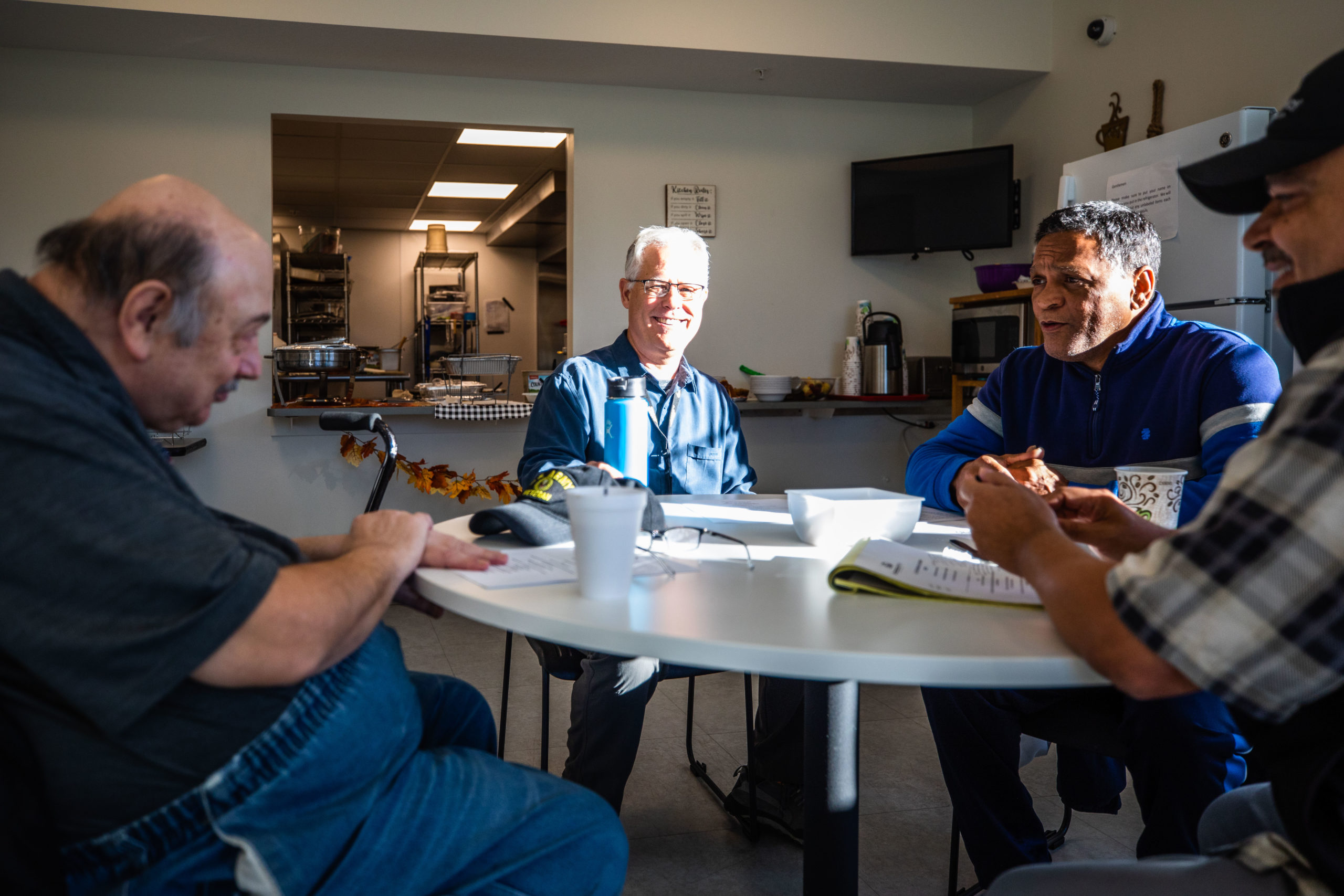This year we are focusing on a biblical and theological theme for each month. In January we concentrated on justice. This month we are exploring the dynamic pairing of faith and faithfulness, which are intertwined together. At the end of the month, our first “Theological Trails” monograph will probe into the principles of faith and faithfulness and their practice in ministry and secular settings.
But right now, we’d like to share a brief resident testimony which accentuates what we see as a necessary component of faith, namely, trust.
Just this past month, a graduating resident who had successfully completed his time at one of our sites took a few moments to speak with staff before moving back into the community to be with his family. After we prayed over this man, discussion ensued about his visions and goals for life after Damascus Way. In addition to working towards supporting his wife and kids, this resident spoke about being inspired by our staff. He had observed how those working at Damascus, “didn’t see this as just another job,” and because of this he knew that we truly cared about the work that we were doing. He was so inspired by our staff members that he expressed interest in coming back to volunteer with us.
What is striking about this story was its implicit expression of trust. This is partly because in our field of work there is a great deal of mistrust, often for good reason. Many men who have been formerly incarcerated have broken the bonds of trust between themselves and others. There are also times when these same men experience the fracturing of trust in their own interactions with the correctional and judicial systems. Thus, many individuals come into reentry programs like Damascus Way with a strong sense of mistrust, suspicion and reticence. This makes building relationships and bridges between staff and residents inherently difficult.
As we think about how to rebuild trust and to encourage individuals to take responsibility for their own breaches of trust through actions that have harmed the community and others, the twin values of faith and faithfulness come to mind. An extremely important aspect of faith is trust. Faith also coincides with faithfulness as the two terms are essentially interchangeable. And so faith = faithfulness and vice versa. This means that to have faith is to be faithful and to be faithful is to have faith. Fittingly, the exercise of faith (or faithfulness) is the means by which to build trust. Think of a relationship or a friendship. Generally speaking, trust is built over time and as the faithfulness of individual to another manifests day after day in concrete displays of fidelity and faithfulness. In turn, trust increases.
The heartening story of the aforementioned resident is a testament to trust and to faithfulness. It demonstrates the faithful actions of staff who exemplified the kind of character which built (and perhaps restored) this man’s ability to trust that we genuinely cared for his wellbeing and success. At some point during his time with us, he had to choose to exercise faith. To trust that we were looking out for his best interests. While this step was no doubt difficult, it also became profoundly rewarding for him and for our team. That is true faith in action.
Thanks for reading.

